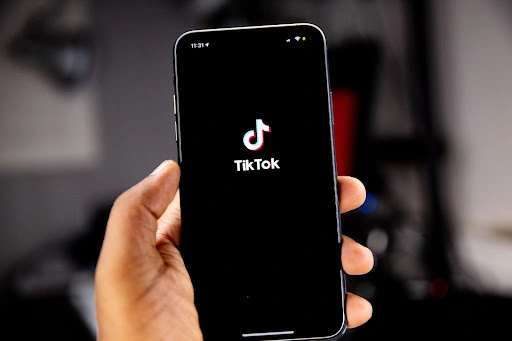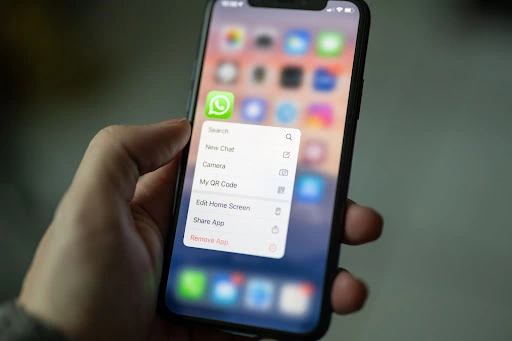Using social media platforms, like Facebook and Instagram, for business is no longer optional. Creating Social media accounts has become crucial for reaching customers, learning more about your target demographic, and growing your company. It can also be a profitable marketing channel.
With so many social media networks available, you may not know which will provide the most value to your company. Today, we’ll help you determine the best option by sharing the top 10 social media accounts for business.
The purpose of social media in business
While you may use social media personally to share life updates and connect with friends and family worldwide, it serves many purposes for business. By setting up social media accounts for your company, you can connect with your audience, share business updates, showcase products or services, and highlight customer reviews.
How to use social media for business
Specifically, you can use your company’s social media accounts for marketing, sales, customer service, and recruiting.
Marketing
Consumers are on social media daily, and you need to be where they are. By adding social media to your marketing strategy, you can reach more customers and potential customers online.
To ensure your social media marketing is successful, keep these tips in mind:
- Post consistently. Your followers will come to expect and even search out your posts if they know when to expect them. For some platforms, like LinkedIn, you may only need to post once a week. You may need to post on other networks, like Twitter, multiple times a day.
- Develop a clear voice. Your company’s voice, or personality, should resonate with your target audience and help them better connect with your brand. For example, your business might come across as friendly, funny, or professional.
- Have fun. Create exciting ways to generate more leads and engage with your followers by running contests, sharing links to your website, offering discounts, and hosting live videos.
- Get to know your audience. Each social media platform offers analytic tools to help you learn more about your followers, including demographics and customer behavior.
Sales
One of the most profitable uses of social media is to use it to increase your sales. Generally speaking, there are several ways to leverage your social media to boost sales.
- Advertise on various networks. Most social media platforms allow you to advertise, helping you reach your target audience and track how effective your campaigns are.
- Sell through the platform. Some social media networks, like Facebook and Instagram, allow you to sell your products or services directly through your social media account.
- Work with influencers and brand ambassadors. Find related influencers and enthusiastic customers who can share how much they love your products or services, which will help boost your sales.
Customer service
Since your customers already use social media, using your company’s social media accounts for customer service can help you provide better support. You can respond to issues and questions quickly and efficiently to help you build a more loyal customer base. And if an unhappy customer complains on social media, you can ask them to send you a direct message to continue the conversation privately.
Recruiting and hiring
You can use social media networks, like LinkedIn and Facebook, to find new candidates for open job positions. You’ll have access to a broader candidate pool than advertising locally, which helps you recruit and hire the best talent for your small business. You can also use your social media accounts to showcase your company’s culture and values to attract potential employees.
When to use social media in your business
Determining the best time to start using social media for your business largely depends on your goals and your primary purpose for using a specific platform. If you use social media primarily for marketing and sales, you might want to create accounts early to start engaging with your target audience and build brand awareness. On the other hand, if social media will primarily be for customer service, you may want to wait until you have an established customer base that needs the support.
No matter when you start using social media, it’s important to recognize that it’s a commitment. No matter how you use it, it can be challenging to grow an audience, create high-quality content, and increase engagement with your followers. Before signing up for various social media accounts, build your social media strategy and ensure you have the resources to execute it.
Benefits of having social media accounts for your business
Social media helps your brand gain exposure and find potential customers. But those are not the only benefits of using social media in your small business.
Build brand awareness
Consumers regularly discover new brands, products, and services on social media. You’ll stand out from the competition and reach new potential customers by being active on various platforms.
Establish your company as a thought leader
People often look to brands for information, and there’s no better place to share insights into your business and industry than on social media. When you post regularly to your social media accounts, you can share your well-researched content with a new audience, which will prove your expertise and grow your following. This can help establish your business as a thought leader or the go-to source for information within your industry.
Increase website traffic
Social media posts and ads are great ways to drive more traffic to your website. You can share parts of your content on your social media channels and invite followers to visit your site to learn more. You can also include your website in your profiles so people can learn more about your company with one click.
Learn more about your customers
Social media usage produces a large amount of real-time data about your customers and target audience. This information can help you make better business decisions and tailor your marketing strategy to speak directly to your followers.
Connect with customers
Traditional media, like television and radio, only offers one-way communication. But social media allows you to start a conversation with your audience. You can interact directly with your customers by responding to comments, questions, and concerns. This will reduce your churn rate (the percentage of people who stop doing business with you) and increase the number of repeat customers you have.
Boost sales
One of the biggest benefits of using social media for your business is to lead consumers through your sales funnel to make a purchase. A sales funnel is the process through which a new lead learns more about your products, services, and business to eventually become a customer.
Keep an eye on your competitors
It’s crucial to know what consumers say about your competition. With social media, you can track mentions of your competitors to learn about potential pain points with their products or services. You can address those pain points with your offerings to potentially win new customers.
How to measure social media account results
When marketing your business, it can often be challenging to prove a return on investment (ROI). Thankfully, most social media platforms provide companies with tracking and analytic tools to help them see the full impact of their social media activities.
To help you determine how successful your social media marketing is, consider taking the following steps:
- Determine your immediate goals. Setting achievable goals and building your strategy around them is key to measuring success.
- Understand your business’s long-term goals. To ensure that your immediate goals are beneficial, ensure that you know how they help you achieve your long-term goals. To help you track these goals, consider setting key performance indicators (KPIs), which measure performance based on your overall business goals. To learn more about how to track KPIs, read our article “What is a key performance indicator (KPI)?”
- Determine which metrics to track. Once you know your goals, pinpoint the right metrics to follow to see if you’re achieving those targets. You’ll likely want to focus on metrics like engagement, audience, reach, and sentiment while ignoring vanity metrics. Vanity metrics, like the number of followers and likes, are highly visible but do not necessarily tell you how well a campaign is doing.
Different types of social media accounts
Like many small business owners, you already know that you need to use social media, and the real problem is trying to decide which platform is best. Here are the top 10 social media platforms to help you decide which ones to use.
LinkedIn is an online networking tool that has changed how many people find new jobs. Individual profiles are set up like resumes, and businesses can create pages to share content and promote themselves. While many social media platforms attract new customers, LinkedIn is often ideal for finding new business partners or employees.
Users go to LinkedIn to learn more about their industry through groups. You can join these groups to ask and answer questions, which will help you build brand recognition and present yourself as a thought leader in the industry.

Facebook is one of the best social media platforms for business because it has a large user base. Creating a Facebook business page allows you to connect with your target audience and gain new customers. You can create private groups, which are an excellent way for customers to ask questions and have a personalized experience with your business. This can help turn them into brand ambassadors.
A Facebook business account allows you to highlight important information, like how to contact you, your hours of operation, and the products or services you offer. You can even sell directly from Facebook.
Instagram started as a mobile-only platform to share photos. It has since expanded to include videos through Stories (videos and pictures that disappear after 24 hours) and Reels (short, fun, and engaging videos). Instagram has also added a “checkout” feature to allow you to sell your products directly from the app.
Most businesses can benefit from an Instagram account, but it’s particularly beneficial for companies that want to show their products, services, values, and voice to their audience.
Twitter can be a powerful tool for building brand awareness and connecting directly with your customers. You can share posts, called tweets, that are up to 280 characters long and include videos, images, links, polls, and graphics. Twitter is less visually-oriented than other social media networks, so it is useful for sharing information in real time.

If your company is highly visual, Twitter might not be the right platform for you. But you can still use Twitter to improve customer service. Customers can communicate directly with you through tweets or direct messages.
YouTube
YouTube has become the go-to platform for sharing information by video. Users go to YouTube for entertainment and to learn new things. For businesses, YouTube can be a great way to share tutorials on how to use products, showcase new products, or give personal press releases.
Creating high-quality video content, though, can require a lot of time and resources. Thankfully, smartphones make it easier for you to record high-quality videos, so you do not necessarily need high-end equipment.
TikTok

TikTok has seen explosive growth since entering the global market. It’s particularly popular with Generation Z and is designed for creating and sharing short, fun videos. Unlike YouTube, your videos do not need to be high-quality. Instead, your videos should be authentic, creative, and fun.
TikTok may not be suitable for every business because it requires you to market your business interestingly with a unique voice. If you want to sell to Generation Z, watch how other companies use TikTok before trying it yourself.
Pinterest is a purely visual social media platform that allows users to save (or “pin”) pictures and videos and organize them by categories on digital bulletin boards. It’s particularly great for home decor, cooking, photography, travel, and fashion businesses. But with enough creativity, nearly all companies can use Pinterest to drive more traffic to their website.
Many consumers find new brands and products through Pinterest. And Pinterest shoppers tend to spend twice as much as shoppers on other platforms and have 85 percent larger baskets. This makes Pinterest an excellent platform for increasing your sales and revenue.
Snapchat
Snapchat is a mobile-only app that allows users to share short videos, photos, and chats that disappear after a short time. Because the content is temporary, it does not have to be high-quality.
The app has expanded to include messaging, image storage, events, and media content making it even more beneficial for businesses. The content can now be saved and uploaded elsewhere to help you make the most of the content.
But keep in mind that Snapchat may not be right for every business. It’s mainly popular with younger users, so it’s attractive to owners who want to target that age group. To make the most of it, ensure your content is brief, engaging, and fun.

WhatsApp is a messaging app that’s primarily used for communicating with friends and family. But WhatsApp Business has made it a must-have social media account for small businesses. WhatsApp allows you to connect with your customers and provide more efficient customer service through a few key features:
- Quick replies, which enables you to create templates to answer commonly asked questions quickly
- Labels to help you organize and categorize your messages by urgency or topic
- Away messages and greeting messages, which are automated so that customers get a response immediately, even if you are unable to respond
WhatsApp Business also lets you showcase your products in a catalog, so customers can browse your offerings without leaving the app.
Reddit works differently than many of the social media platforms already mentioned. Most Reddit groups, called subreddits, have strict rules about what can and cannot be posted, particularly for commercial purposes and advertising. You can still find a lot of success on Reddit; it will just take more creativity and a genuine desire to learn and share information.
To get started, interact with various subreddits to gain karma or points earned for contributing to the community. After building authority, consider asking for feedback about your business or including relevant links to your website in your responses. Keep in mind, though, that Reddit users can see your post history and will know whether you’re genuinely contributing or just trying to attract visitors to your website.
Choosing the right social media accounts for your business
Ultimately, the social media networks you choose will depend on your business and social media goals. But now, you know how to decide which social media accounts will provide the most value for your company.
What did you think about this article? Did it help you decide which social media accounts to use for your business?

